Is Copenhagen Pride Parade a civil religion?
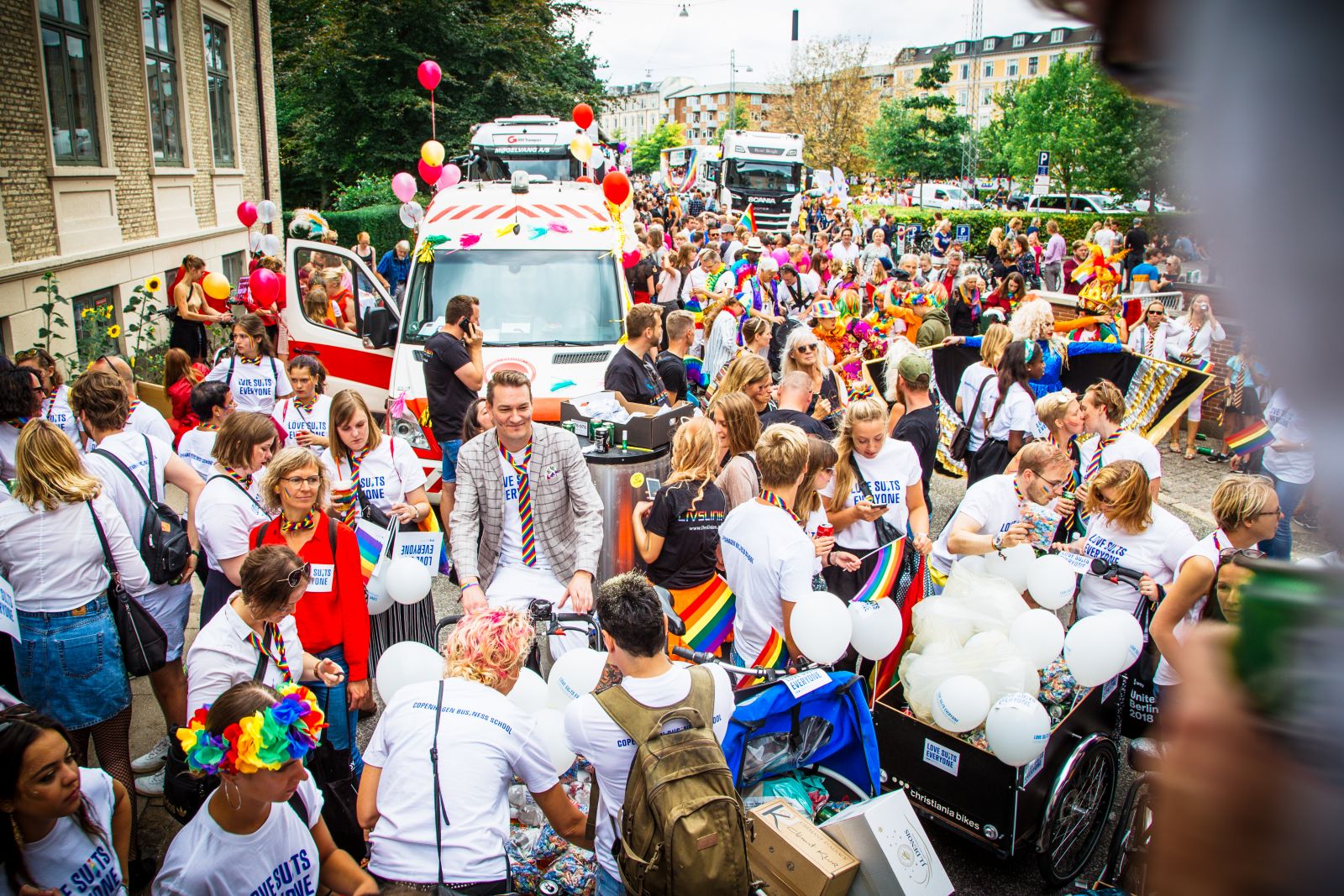
Pride Parade 2018 (Photo: Luyi Liang)
Three researchers are behind a new research project at CBS that examines how Copenhagen Pride influences participants from organizations such as Netto, Danske Bank and the Danish Police. Organizations that over the past couple of years have been accused of so-called pink washing etc. And the researchers are looking for answers by approaching it as nothing less than a civil religion.
This week, the streets of Copenhagen should have been covered with rainbow flags, sounds of disco music and dancing people yelling slogans such as “love is love”. But due to COVID-19, that won’t be possible.
Nevertheless, Pride Week will not be put entirely on hold. On the contrary, a range of different events will be held during the week and transmitted online.
And one of those events is a debate where Postdoc Jannick Friis Christensen and the two Principal Investigators Sine Nørholm Just and Stefan Schwarzkopf will discuss whether or not Copenhagen Pride can be interpreted as a new civil religion.
And this is exactly what they will examine in a new research project at CBS over the course of the next three years.
Pride rainbows and LGBTQIA+ slogans everywhere
According to Jannick Friis Christensen, and the two PIs, Sine Nørholm Just and Stefan Schwarzkopf, the project will focus on the World Pride scheduled for 2021 in Copenhagen.
A parade that in recent years has been the arena of an ongoing debate about commercialization.
“Gradually, more and more organizations and companies have joined the parade. And last year, you couldn’t even walk into a Netto shop without being confronted with Pride rainbows and LGBTQIA+ slogans everywhere,” Stefan Schwarzkopf says and continues:
“And in our research group, we discussed how both the Pride movement and society in general deal with this branding and commercialization of the Copenhagen Pride Parade, which we found very interesting.”
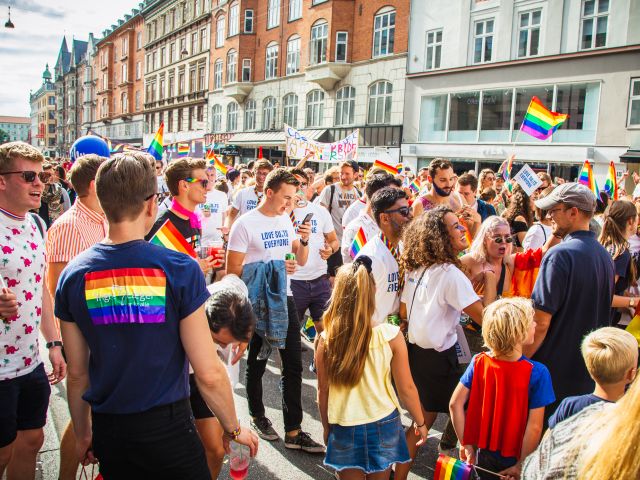
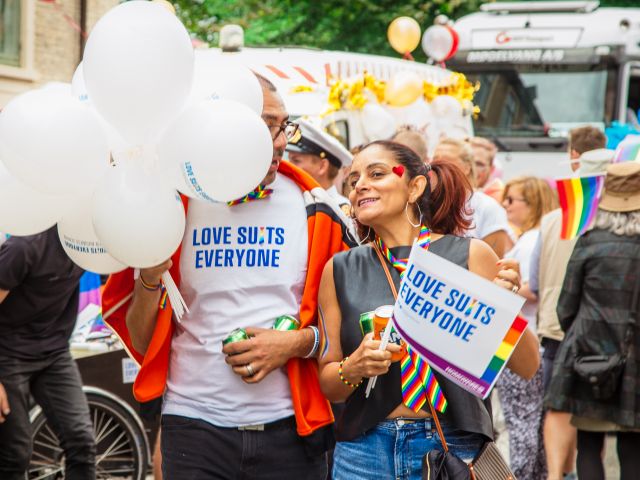
But the debate about whether different organizations and major companies take part in the parade for support or profit has already become a little worn out, according to Stefan Schwarzkopf.
“The same arguments are brought to the table over and over again, so instead we decided to look at it from another perspective and ask the question: What happens to people from various organizations, say, Danske Bank, the police, and Netto, when they take part in the parade?”
And to answer this question, the research team uses a theoretical approach that does not immediately sound like something associated with celebrating and advocating LGBTQIA+ equality: They will look at the parade as a civil religion.
Copenhagen Pride Parade – a civil religion
One of the main theories that the three researchers are using to analyze the Pride Parade’s influence on people was developed over 100 years ago by the French sociologist Émile Durkheim. More specifically, it is the theory about civil religions.
According to Stefan Schwarzkopf, Durkheim argued that in moments where people gather to arrange rituals in large crowds, a sense of a transcendent self emerges.
Through celebration, dancing and singing, this transcendent self develops into a shared belief among the participants that there is something beyond themselves that they can achieve in that specific moment. And that is exactly how a civil religion works.
“I was extremely provoked by the idea of combining civil religions with the Pride Parade
Postdoc Jannick Friis Christensen
“In the case of the Copenhagen Pride Parade, this achievement, or the higher social goal, is that a society without exclusion can actually become a reality,” Stefan Schwarzkopf says and goes on:
“On a daily basis, you’ll encounter differences and prejudices. But for the hours that the Pride Parade is happening, you get the spirit that life can be different. And in our project, we’re looking for evidence of that: That people from organizations join the parade because they believe in LGBTQIA+ rights and equality in society.”
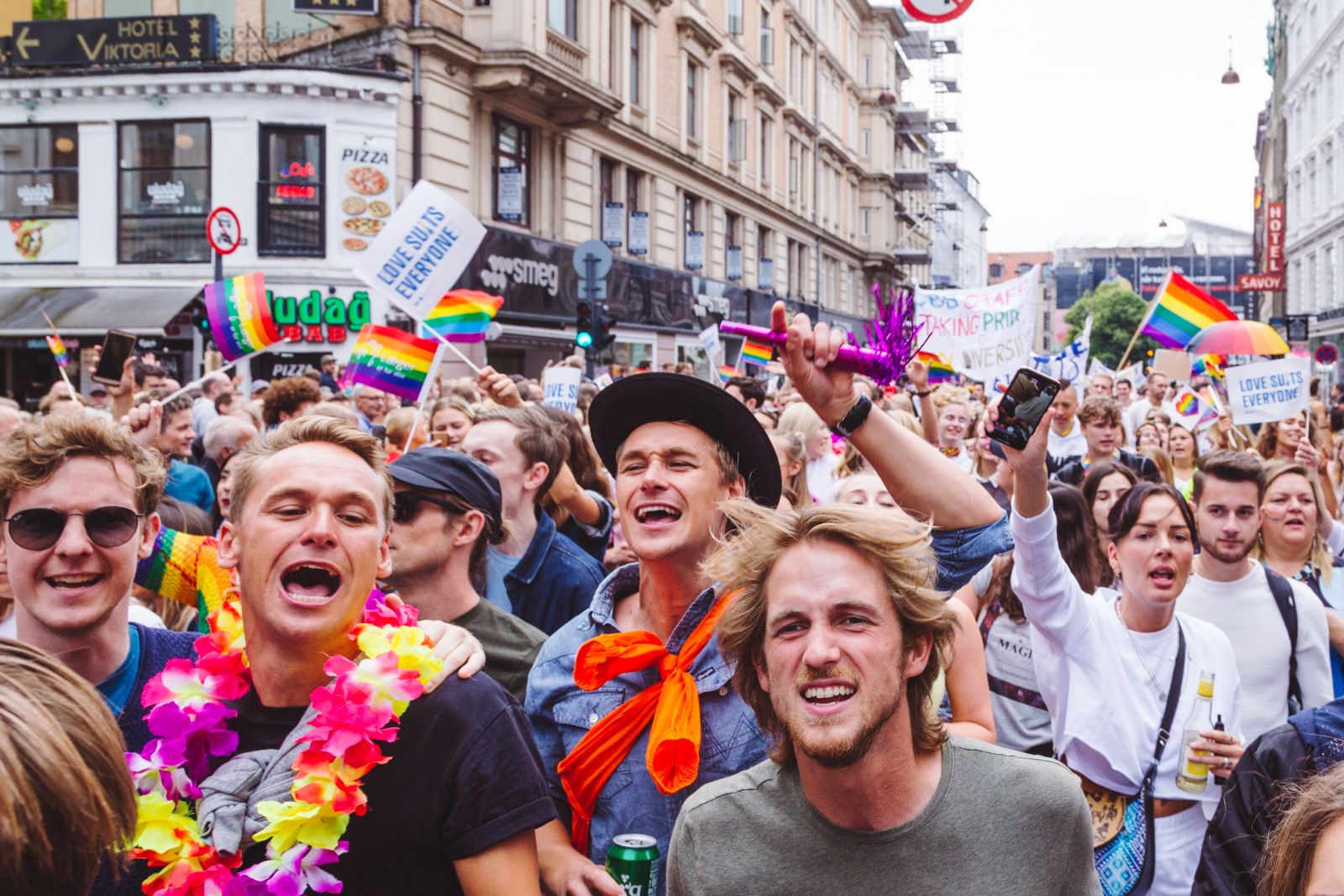
Although the decision to use civil religions as a theoretical tool might sound like an appropriate choice to some, Postdoc Jannick Friis Christensen was not initially very keen on the idea.
“I was extremely provoked by the idea of combining civil religions with the Pride Parade,” he says.
“I wouldn’t say that religion is a controversial issue in the queer environment, but it is definitely something that many queer people have had to deal with at some point, because they’ve been excluded from religious communities.”
“So this idea of thinking of LGBTQIA+ people as creating a religious community of their own really provoked me in a way. But in a good way, as I got curious!” Jannick Friis Christensen says with a wry smile.
“It was like a dam breaking”
Jannick Friis Christensen’s curiosity led him to go further with the project. But when conducting research on a phenomenon such as the Copenhagen Pride Parade, which has been staged annually for nearly two and a half decades, there must be a reason why the project is relevant and important just now.
And according to the research team, the relevance lies in the sudden influx of organizations and businesses participating in the Pride Parade, and the discussions it has triggered.
“It became relevant a couple of years ago when organizations suddenly began participating in the Pride Parade, and that sparked a debate about commercialization at the expense of the LGBTQIA+ movement,” Stefan Schwarzkopf says and continues:
“It came very suddenly. It was like a dam breaking and every organization and every company immediately had to wear rainbow colors. And I think this was the moment when people began to ask questions and pay more theoretical attention towards this trend.”
Despite the debates and accusations against organizations suddenly coming out of the blue and taking a stance, it is important for Jannick Friis Christensen and the two principal investigators of the project to underline that organizations can actually participate in the parade with sincere and heartfelt support.
“I think many organizations currently want to engage in Pride Week in a meaningful way – a way that’s both meaningful to themselves and to the pride movement. The problem is, though, that they just don’t know how to do that,” says Jannick Friis Christensen.
He explains, however, that what the organizations – especially for-profit organization – can observe is that as soon as they try to take part in pride events, they easily get accused of ‘pink washing’, which basically means exploiting the authenticity of the queer movement without giving anything back on a daily basis.
“With this research project, I think we can help a lot of organizations to realize that the reason why we can celebrate diversity today is that historically and culturally, diversity has been oppressed. So pride is a rights movement that has developed into something bigger that everyone can join. But when you join in, you must be very sensitive towards the movement,” he says and continues:
“And one of the deliverables of the project, I believe, will be to identify how organizations can participate in pride events in a meaningful and sensitive way.”
Data and debate
Even though the project has just begun, Jannick Friis Christensen has already made the first couple of background interviews and collected some data from social media.

However, the research project’s primary case is World Pride, which is scheduled to take place in Copenhagen next year, twenty-five years after the first Copenhagen Pride. Here, he will observe, take notes, take pictures, and interview people in the parade.
Therefore, fortunately, the cancellation of this year’s Copenhagen Pride Parade will not affect the project much. And anyway, Copenhagen Pride has not been completely cancelled. As Jannick Friis Christensen says, the Pride board has decided that not even a global pandemic can stop the celebration of and fight for equality.
Therefore, Jannick Friis Christensen, Sine Nørholm Just and Stefan Schwarzkopf have been invited to join a debate during Pride Week about their new research project.
“We’re really looking forward to it. Even though the project hasn’t come far yet, we still have some clear ideas and thoughts about the project that we think are interesting to bring to the table for discussion,” Jannick Friis Christensen says.
“Because just like it was for me, it can be quite provocative for people in the LGBTQIA+ movement to be put in the same box as religion. But hopefully, through the debate, they will also get curious like I did.”



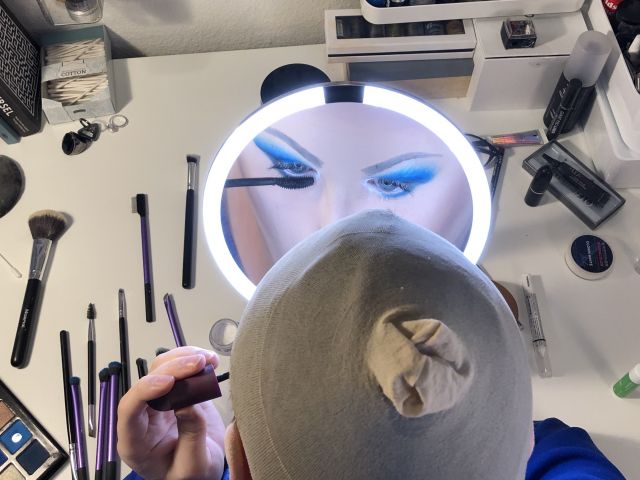
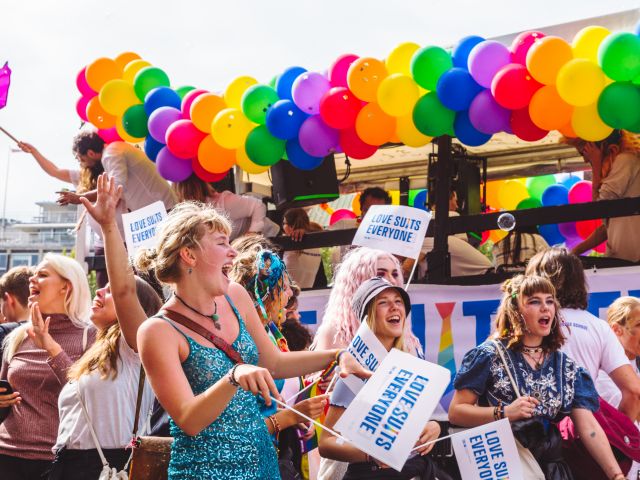
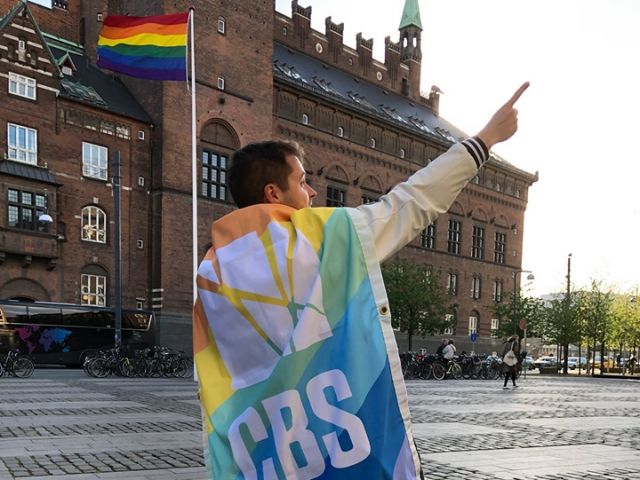






























































































































Comments